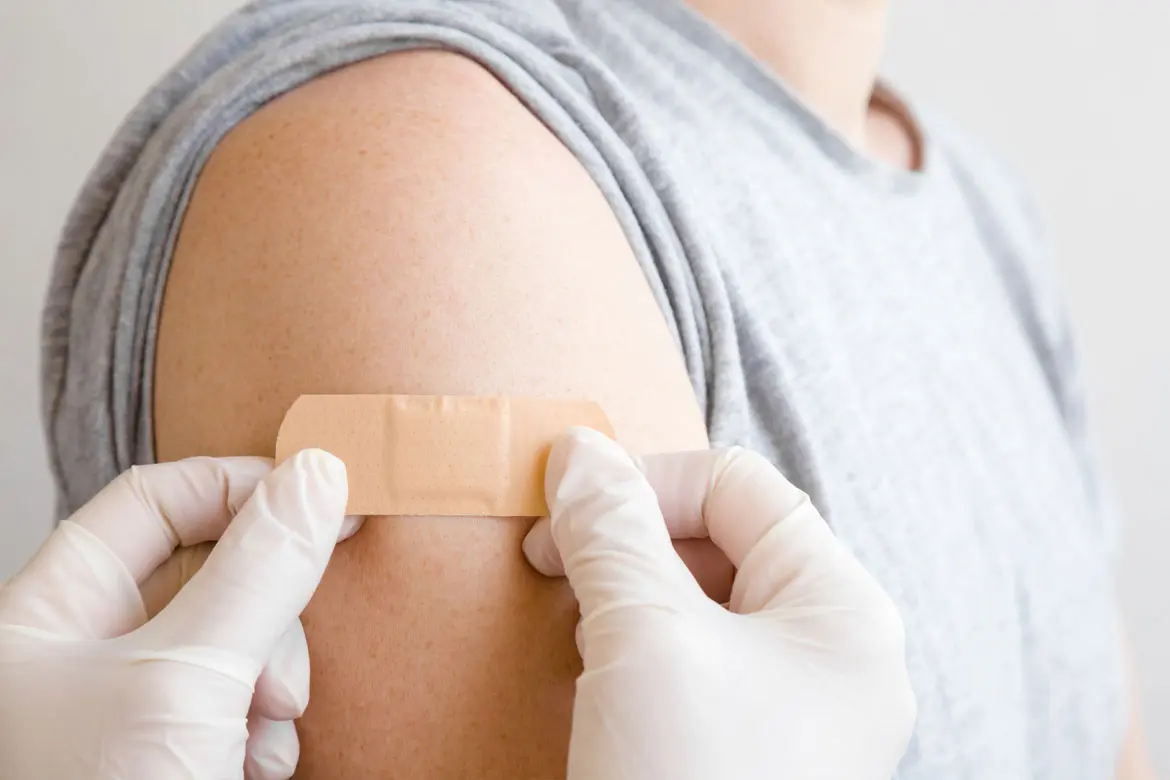Joy Marie Lim
Medical Advisor


Source: Shutterstock
Medical Advisor
Vaccines are biological products designed to protect your body from diseases caused by pathogens such as bacteria and viruses. Vaccines are made using dead or weakened versions of said bacteria and viruses, called antigens. A vaccine, when injected into the body, stimulates your immune system to produce antibodies that neutralise pathogens, precisely the way it would if you were exposed to the disease.
Vaccination is a highly effective, easy way to keep yourself and your family healthy. Timely vaccination, especially during childhood, can help prevent diseases that can cause pain and long-term health problems. Vaccination also helps prevent the spread of contagious diseases – the more the people in a community are vaccinated, the harder it is for a disease to spread. This indirect protection from infectious disease is also termed "herd immunity".
Take the COVID-19 outbreak for example. As the novel coronavirus continues to spread, global efforts to develop COVID-19 vaccines intensify because a safe and effective vaccine can be one of the most important measures in protecting the world from this deadly virus.
Vaccines work by training your body's immune system to recognise and fight a disease before you get sick. When ‘foreign invaders’ such as bacteria or viruses enter your body, they start to attack and multiply. This invasion is what causes an infection or illness. To retaliate, your immune system responds by producing special proteins called antibodies that help neutralise the pathogens. The first time the body encounters a pathogen, the immune system can take several days to fight it off. After the infection, your body's immune system remembers the disease-causing pathogen and if you are ever exposed to the same pathogen again, your immune system will be able to destroy it before it has a chance to make you sick. This protection is called immunity and the ability of the immune system to remember the pathogen is the basis for vaccination.
There are several types of vaccines, and each is developed using a unique technique. Live, attenuated vaccines contain live viruses that have been weakened or modified so as not to cause the disease. The MMR vaccine (measles, mumps, and rubella vaccine) and varicella (chickenpox) vaccine belong to this group. Inactivated vaccines use an inactivate version of the pathogen to generate an immune response. Examples of inactivated vaccines include the seasonal influenza vaccine and polio vaccine. Toxoid vaccines such as the DTaP vaccine (diphtheria, tetanus and pertussis toxoids) are created using inactivated toxins. Subunit or conjugate vaccines contain only pieces of the target pathogen to provoke an immune response. The Haemophilus influenzae type B (Hib) vaccine is a conjugate vaccine.
Vaccines are created to protect you during future exposures to the disease. Most vaccines offer good protection for many years, however, in some cases a small proportion of people may not get an adequate immune response to the vaccine, and hence may not be effectively protected after immunisation. Also, the levels of protection offered by vaccines may naturally decrease over time or may be reduced because of medical conditions, medications or ageing. Another critical point is that some viruses and bacteria may change and evolve in ways that help them survive in a vaccinated world. This can have an impact on how effective the vaccines are, with some vaccines losing their ability to confer protection over time.
Natural immunity is the natural ability of your body to build resistance to a disease after getting sick. Some people believe that natural infections would likely produce better immunity than vaccines. But the risks associated with the development of a natural infection are much higher. Some highly contagious diseases can lead to serious and deadly complications such as pneumonia from chicken pox, liver cancer from the hepatitis B virus and birth defects from rubella. A vaccine on the other hand, can safely and effectively produce an immune response in your body without causing illness.
Vaccines have a broad impact on our health extending beyond those who are vaccinated. Most vaccines protect both the vaccinated individual and the community at large by building up herd immunity. This is because when a high percentage of the population is vaccinated, it is difficult for infectious diseases to spread.
Vaccines can also prevent cancer. Getting a preventive cancer vaccine such as the human papillomavirus (HPV) vaccine can help to protect girls and boys from specific types of HPV infection that could lead to deadly diseases such as cervical, anal and penile cancers.
The vaccines you need as an adult are determined by many factors such as your health, age, immunisation history, lifestyle, occupation and even travel destinations. For example, if you are pregnant, you may receive a Tdap vaccine with each pregnancy to help protect your baby from pertussis. If you have a long term health condition, such as diabetes, getting the flu and pneumococcal vaccines may greatly minimise the risk of complications from the underlying condition.
Speak to your doctor to find out if you are up-to-date with your immunisations and to discuss which vaccines could be beneficial for your health.